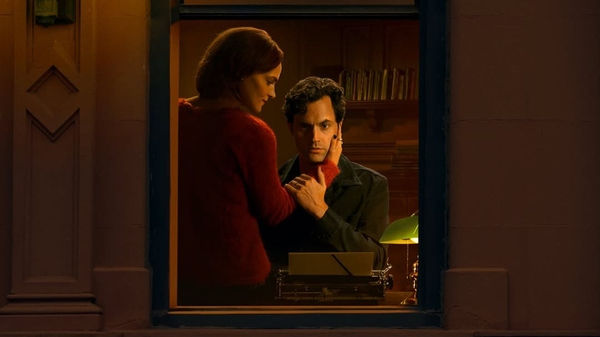What 'Marriage Story' Can Teach Us About Divorce and Communication
- Doris Cozma

- Feb 27, 2025
- 4 min read
Updated: Mar 24, 2025
In my Divorce Coaching training, we were tasked with analysing the fascinating story and relationship dynamics in the blockbuster film Marriage Story, based on one scene (linked below). The film, starring Adam Driver and Scarlett Johansson, explores a couple’s painful journey through separation, highlighting the emotional conflicts and communication breakdowns that so often accompany divorce.
One particularly intense scene encapsulates many of the struggles I see in my work - unspoken frustrations, blame, defensiveness, and deep emotional wounds. Watching it through the lens of a divorce coach, I saw not just the pain of the couple’s unravelling relationship, but also opportunities for healing, growth, and better communication - had they received the right support.
The Breakdown: What Marriage Story Reveals About Communication in Divorce
This pivotal scene between Nicole (Johansson) and Charlie (Driver) lays bare why their relationship has deteriorated. Their attempts to communicate are filled with resentment, defensiveness, and emotional manipulation, preventing them from addressing their deeper issues with honesty and vulnerability.
💔 Built-Up Resentment and Unmet Needs
Over time, unspoken frustrations create emotional distance in relationships. Research in the Journal of Family Communication found that couples who fail to voice their emotions constructively are more likely to drift apart, leading to long-term resentment.
💡What They Could Have Done Differently
Instead of letting frustrations accumulate in silence, partners should practice regular, open conversations about their needs, before resentment takes hold. In divorce coaching, I help clients articulate their emotions in a way that promotes understanding rather than conflict.
💬 Defensiveness and the 'Blame Game'
Both Nicole and Charlie avoid taking responsibility by blaming each other, particularly by comparing each other to their parents. This kind of criticism and defensiveness is what The Gottman Institute calls two of the 'Four Horsemen of the Apocalypse', predictors of relationship failure.
💡A Healthier Alternative
Instead of finger-pointing, effective communication involves self-awareness and ownership of emotions. Using “I” statements (e.g. “I feel unheard when…”) rather than “You always…” accusations helps prevent defensiveness and keeps discussions productive.
🎭 Emotional Manipulation and Insecurity
At one point, Charlie sarcastically remarks about Nicole finding a “better, opposite guy”. This isn’t just a throwaway comment, it’s a manifestation of deep-seated insecurity. According to the American Psychological Association, insecurity in relationships can lead to manipulative communication patterns, ultimately eroding trust and emotional intimacy.
💡How Divorce Coaching Helps
In sessions, I help clients unpack their emotional triggers and understand how insecurities can drive unhealthy communication patterns. A key focus is helping them rebuild self-confidence, whether in co-parenting relationships, future partnerships, or personal growth.
How a Divorce Coach Could Have Helped Nicole & Charlie
As a Divorce and Separation Coach, my role is to help clients break free from destructive communication cycles and navigate divorce with emotional clarity and resilience.
✔ Encouraging Empathy and Self-Awareness
Empathy is key in both relationships and separations. A study by the University of California, Berkeley found that couples who practice empathy and self-awareness are better at managing conflict. In coaching, I guide clients through reflecting on their own triggers, emotional responses, and underlying needs, so they can engage in healthier communication.
✔ Addressing Frustrations Before They Spiral
According to research in the Journal of Marriage and Family, unmet emotional needs are one of the leading factors behind marital dissatisfaction. Instead of avoiding difficult conversations, I encourage clients to express their frustrations constructively, using structured frameworks that prevent emotional escalation.
✔ Developing Better Communication Strategies
Instead of reacting defensively, divorce coaching teaches practical tools like:
Active listening – Really hearing what the other person is saying, rather than waiting to respond.
“I” statements – Expressing emotions without triggering defensiveness.
Pause & process – Taking a moment before responding to emotional triggers.
Studies in Psychological Science show that couples who use structured communication techniques are far more likely to resolve disagreements peacefully, even in high-conflict separations.
✔ Focusing on Personal Growth and Future Healing
Divorce is not just about ending a relationship, it’s about rebuilding your life. The National Institute of Mental Health highlights that focusing on personal growth after a breakup leads to greater emotional well-being in future relationships.
In coaching, I encourage clients to shift from blame to self-improvement, helping them:
Process their emotions in a healthy, constructive way
Identify personal goals for life beyond divorce
Develop co-parenting strategies that prioritise their children’s well-being
Final Thoughts: A Different Ending?
If Nicole and Charlie had engaged in divorce coaching or therapy, could they have navigated their separation with less pain? Possibly. The reality is, most divorcing couples don’t start off wanting conflict, but miscommunication, resentment and emotional wounds often lead them there.
By focusing on self-awareness, emotional intelligence, and constructive communication, divorce coaching helps individuals move forward with greater clarity and confidence, whether that’s in co-parenting, future relationships, or simply in rebuilding themselves.
If you’re navigating a separation and want to break free from conflict, I’d love to help. Book a free exploratory session to get started.



Comments